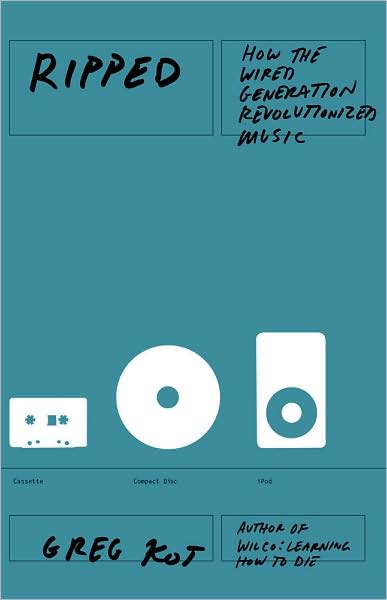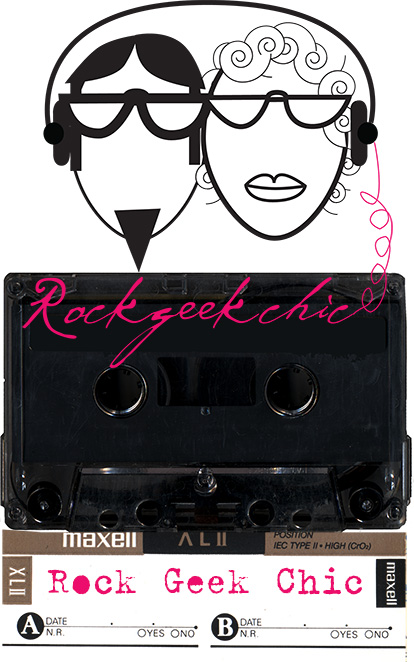Out of Our Brains on 5/15
An interview with Greg Kot
Cristy Scoggins and William Gillespie
William: In Greg Kot’s 2009 book Ripped: How the Wired Generation Revolutionized Music, he traces ways in which the internet has enabled or accelerated independent music publishing, mass music marketing, and the entire arc of a band’s career—from favorable blog posting to worldwide fame. Although while reading the book I found no central thesis, and at times wondered whether the sorts of things he described had always happened, if more slowly (Paisley Park = Apple Records), after talking with him I understood that he is describing something larger, more unpredictable, for which no thesis yet exists: the dismantling of the music industry, traditional album form, genre and, most important, all the prescribed modes of mediation between musicians and the audience who chooses them. If this is true, then it is indeed a revolution, and the future cannot be predicted or summarized in a thesis.
Cristy: I started his book, Ripped: How the Wired Generation Revolutionized Music, with a healthy dose of trepidation. Admittedly, I’ve resisted the lightning-speed changes of the way people listen to music nowadays. Give me a CD, give me an LP, hell, give me a cassette. I like the tangible, something I can hold. I like album artwork. I can’t grasp the digital music aesthetic of single songs, as opposed to the 12-song record experience.
Right before I started Ripped, however, I took the plunge. I heard the song “Dinosaur Vs. Early Man” by Common Loon on the radio, fell crazy in love with it, and had to have it now. I found the song on iTunes and, with the click of a few buttons (not to mention just 99 cents out of my pocket), ta-da! I had it. (I know, I know, I’m sickeningly behind the times. Cut me some slack.)
Here’s what I really loved about Ripped. Kot argues that it’s a phenomenal time for music right now. After reading his chapter on Girl Talk and Dan Deacon, I understood what he meant. These mash-up artists are creating new, innovative forms of music and performance—and gaining mass followings not just through touring, but a giant web presence. I thought back. In the 1980s, when bands like Beat Happening were developing their own do-it-yourself ethos, refusing to become the processed mush that major labels were spoon-feeding the masses, I had no idea they were out there. The radio stations in Springfield sure as hell weren’t playing them. But now the web allows me not only to discover, but to buy music from and even interact with smaller bands like Common Loon and Beat Happening.
W: While the book mostly focuses on superstar success stories, in our interview, Greg Kot mentions the intriguing claim that the web makes possible a musical middle class—artists who are able to sustain themselves through a scale of record sales and touring that would be too small to be supported by a major label, but (without the label taking most of the money) is sufficient to allow them to have a comfortable existence, neither starving nor spoiled.
In our interview, we talked about why the LP refuses to die, why the CD refuses to live, how the fan mixtape or iTunes playlist may be the new album, and why Rick Valentin is misguided when he says “there are no good hypertext novels.”
C: Now I get it. And I will shamelessly declare that I want to be Greg Kot. Who wouldn’t? He’s an acclaimed rock journalist who hosts Sound Opinions on NPR with one of my other heroes, Jim DeRogatis. Best of all, Greg Kot is truly a nice guy.
Greg Kot Interview, Part One:
Greg Kot Interview, Part Two:



